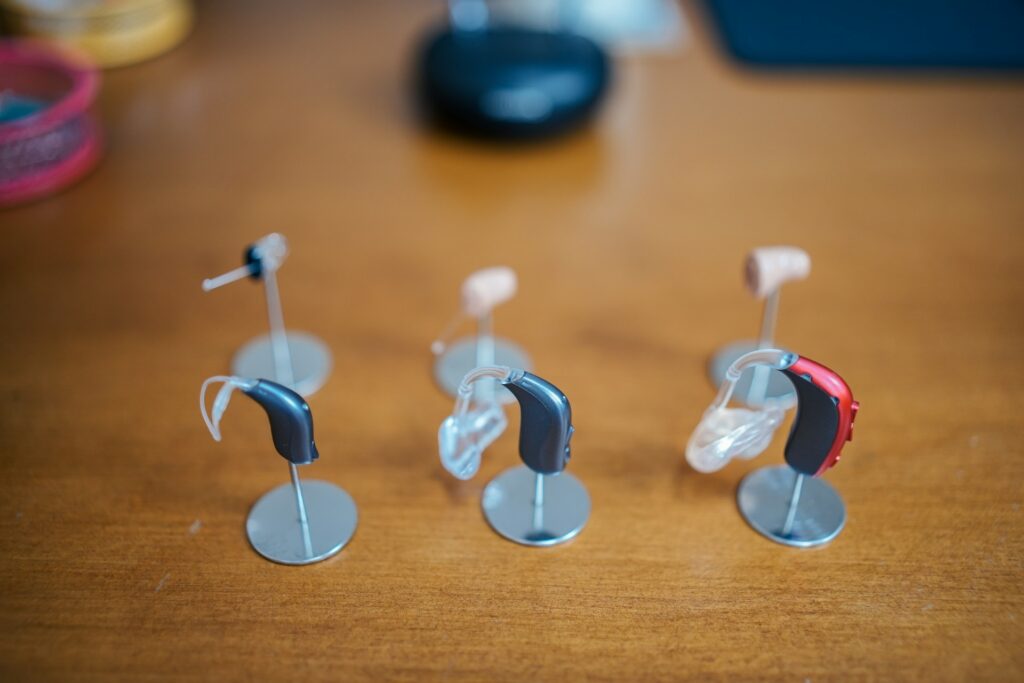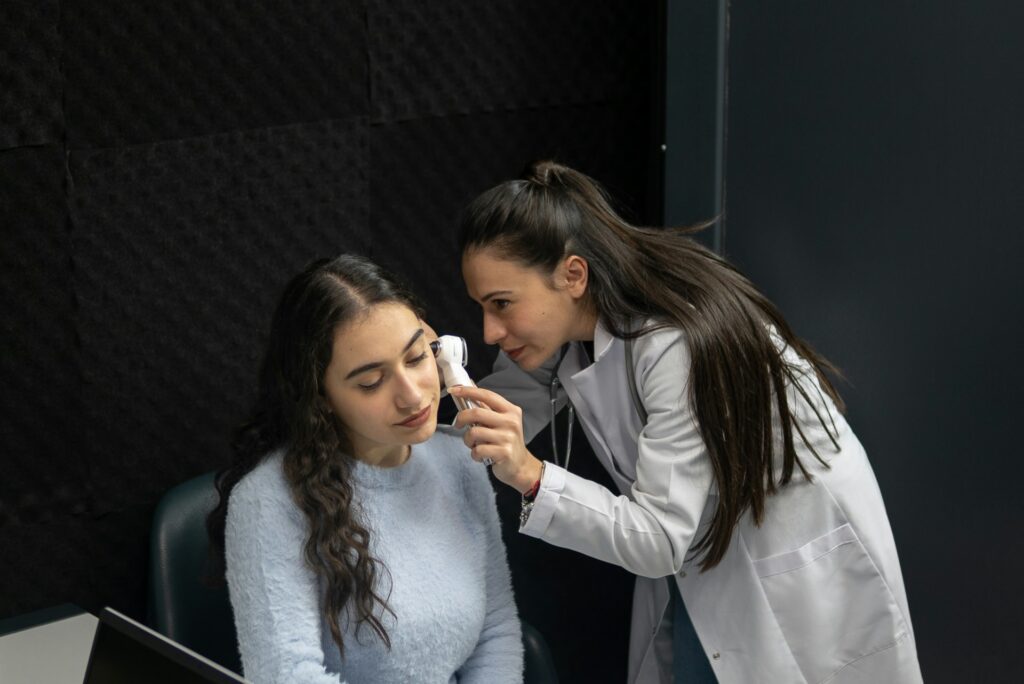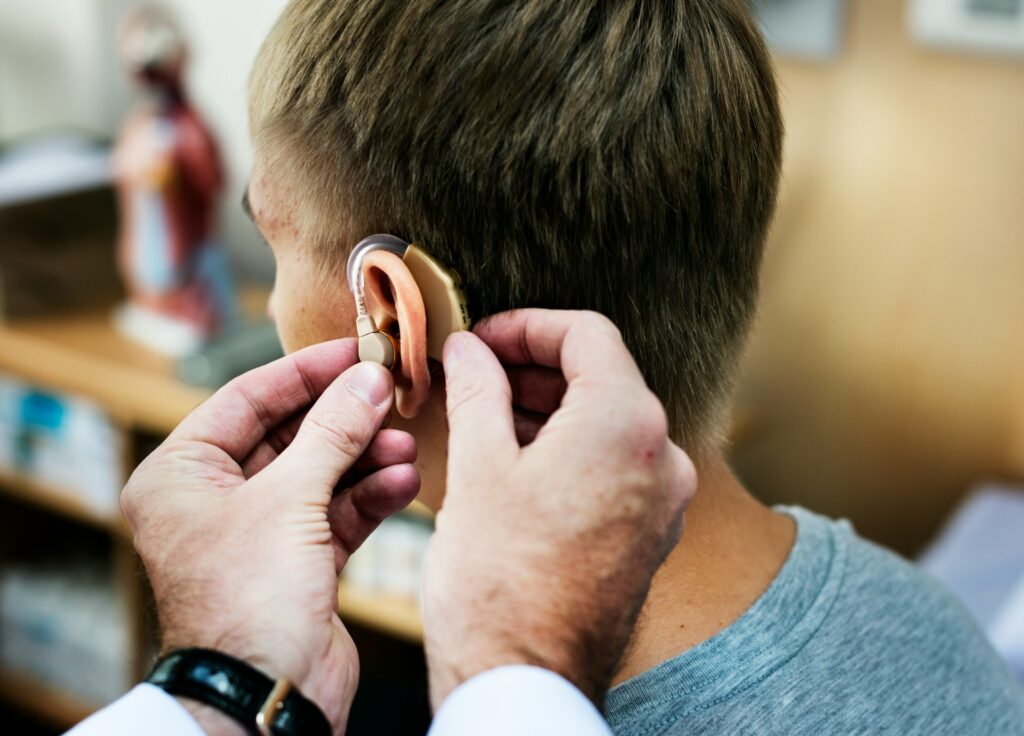Hearing is a precious gift that helps us connect with the world. It allows us to communicate with our loved ones, enjoy music, and stay safe by being aware of our surroundings. Unfortunately, hearing loss can affect anyone, regardless of age or lifestyle.
Regular hearing tests are essential to detect any potential issues early, allowing for timely intervention and treatment. So, how often should you have your hearing tested? In this post, we will discuss the recommended frequency of these tests for different age groups and situations and the importance of maintaining your auditory health.
Why Is Regular Hearing Testing Important?
Hearing loss is often a gradual process that can go unnoticed for years. Many people only realise they have a hearing problem once they begin to experience challenges in their daily lives, such as difficulty understanding conversations, needing to turn up the volume on the television or radio, or noticing that they cannot hear certain sounds. Regular ear exams can detect early signs of hearing loss, allowing for prompt intervention and, in some cases, preventing further deterioration.
The frequency with which you should have your hearing tested depends on several factors, including your age, medical history, occupation, and lifestyle. Let us explore the general guidelines for each of these factors.
Age-Based Recommendations for Hearing Tests
1. Children: Early detection of hearing problems in children is critical, as untreated hearing loss can lead to speech and language delays, affecting their cognitive and social development. The Australian Pediatric Society recommends the following schedule for hearing tests in children:
- Newborns: All infants should undergo a hearing screening before leaving the hospital. This test is quick, painless, and can detect potential hearing problems in the first days of life.
- Ages 4-10: Children should have their hearing tested before starting school and yearly after that, as hearing loss can develop as they grow.
- Ages 11-21: Annual tests are recommended for teenagers and young adults, as they may be exposed to loud noise levels that can cause hearing damage.
2. Adults: For adults without known risk factors for hearing loss, Speech Pathology Australia recommends hearing exams every ten years until age 50 and then every three years after that. However, suppose you have a history of frequent ear infections, a family history of hearing loss, or are exposed to loud noises at work or during leisure activities. In that case, you should consider more frequent testing.
Occupational Hearing Testing
If you work in an environment with high noise levels, such as construction sites, factories, or music venues, you are at an increased risk of noise-induced hearing loss. In America, the Occupational Safety and Health Administration (OSHA) requires employers to implement a hearing conservation program for workers exposed to an average of 85 decibels or higher during an 8-hour workday. This program includes annual tests to monitor any changes in your hearing and ensure that appropriate hearing protection is provided.
Lifestyle-Related Hearing Testing
In addition to age and occupation, certain lifestyle factors can increase your risk of hearing loss. These include smoking, frequent exposure to loud music or noise (e.g., attending concerts, using earbuds at high volumes), and certain medical conditions, such as diabetes or high blood pressure. If you fall into any of these categories, consider scheduling more frequent hearing tests to monitor your auditory health.
Conclusion
Regular hearing tests are essential for maintaining your auditory health and quality of life. By following the age-based recommendations and considering your occupation and lifestyle, you can ensure that potential hearing issues are detected early and promptly addressed. If you suspect you may have a hearing problem, do not hesitate to consult a healthcare professional or audiologist for an evaluation. Remember, caring for your hearing is an investment in your overall health and well-being.
If you are experiencing any hearing-related issues, visit Country Hearing Care. We provide comprehensive hearing tests to determine the cause of hearing problems and offer personalised solutions to help you hear better. We also offer a wide range of hearing aids, from the latest technology to more affordable options, to match your lifestyle and budget. Contact us today to schedule an appointment.










